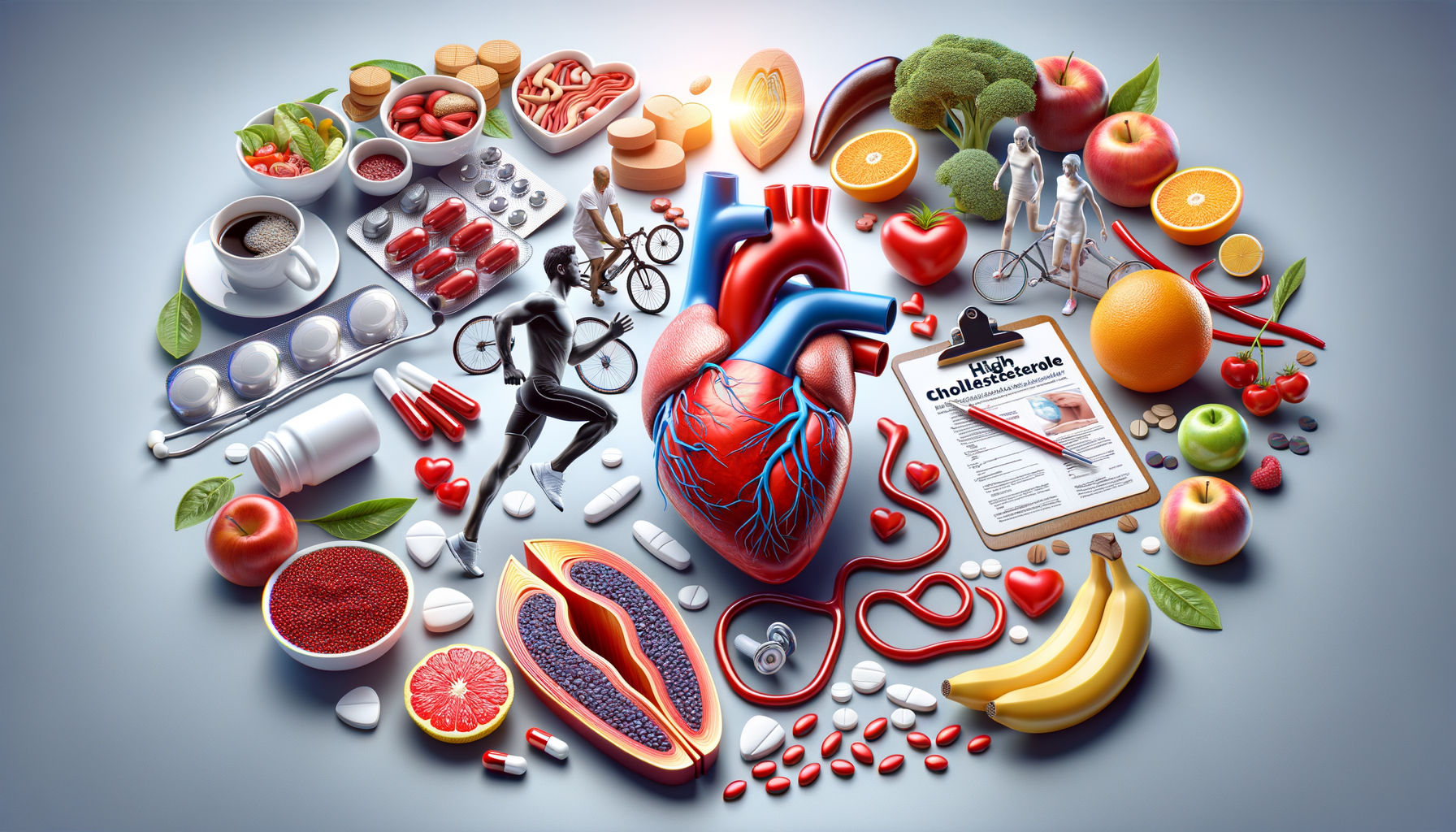Introduction to High Cholesterol
Cholesterol is a waxy substance found in the blood, essential for building healthy cells. However, high levels of cholesterol can increase the risk of heart disease. Understanding the implications of high cholesterol and exploring effective treatments is crucial for maintaining heart health. This article delves into various treatment options and lifestyle changes that can help manage high cholesterol levels.
Understanding Cholesterol Levels
Cholesterol levels are determined through a blood test that measures different types of cholesterol: low-density lipoprotein (LDL), high-density lipoprotein (HDL), and triglycerides. LDL is often referred to as “bad” cholesterol because high levels can lead to plaque buildup in arteries, increasing the risk of cardiovascular disease. HDL, on the other hand, is known as “good” cholesterol as it helps remove LDL from the bloodstream. Maintaining a balance between these types is essential for heart health.
Normal cholesterol levels vary depending on age, gender, and overall health. Generally, a total cholesterol level below 200 mg/dL is considered desirable. An LDL level below 100 mg/dL and an HDL level of 60 mg/dL or higher are ideal. Regular monitoring of cholesterol levels can help in early detection and management of potential health risks.
Lifestyle Changes for Managing Cholesterol
Adopting a healthy lifestyle is a fundamental step in managing high cholesterol. Diet plays a significant role in this process. Incorporating heart-healthy foods, such as fruits, vegetables, whole grains, and lean proteins, can help lower cholesterol levels. Avoiding trans fats and reducing saturated fats found in red meat and full-fat dairy products is also beneficial.
Physical activity is another crucial factor. Engaging in regular exercise, such as brisk walking, cycling, or swimming, can help raise HDL cholesterol and lower LDL cholesterol. Aim for at least 150 minutes of moderate aerobic activity or 75 minutes of vigorous activity each week.
Other lifestyle changes include quitting smoking, limiting alcohol intake, and maintaining a healthy weight. These modifications not only help manage cholesterol but also improve overall health and well-being.
Medications for High Cholesterol
For some individuals, lifestyle changes alone may not be sufficient to manage high cholesterol, necessitating the use of medications. Statins are among the most commonly prescribed drugs for lowering cholesterol. They work by blocking a substance your body needs to make cholesterol, thereby reducing LDL levels.
Other medications include bile acid sequestrants, which help remove cholesterol from the bloodstream, and cholesterol absorption inhibitors that prevent the absorption of cholesterol from food. In some cases, doctors may prescribe a combination of medications to achieve optimal results.
It is important to consult with a healthcare provider to determine the appropriate medication and dosage, as well as to understand potential side effects and interactions with other drugs.
Alternative and Complementary Therapies
In addition to conventional treatments, some individuals explore alternative and complementary therapies for managing cholesterol. These include dietary supplements such as omega-3 fatty acids, which have been shown to lower triglycerides, and plant sterols and stanols, which can help reduce LDL cholesterol.
Herbal remedies, like garlic and red yeast rice, are also popular, although their efficacy and safety may vary. It is crucial to discuss any alternative treatments with a healthcare provider to ensure they are safe and effective for your specific health needs.
Mind-body practices, such as yoga and meditation, can also support heart health by reducing stress and promoting relaxation. While these therapies should not replace conventional treatments, they can complement them as part of a holistic approach to managing high cholesterol.
Conclusion: Taking Control of Your Cholesterol
Managing high cholesterol involves a combination of lifestyle changes, medication, and potentially alternative therapies. By understanding your cholesterol levels and working closely with healthcare professionals, you can develop a personalized plan to reduce your risk of heart disease and improve your overall health. Regular monitoring and a proactive approach to lifestyle modifications can make a significant difference in managing cholesterol effectively.




Leave a Reply